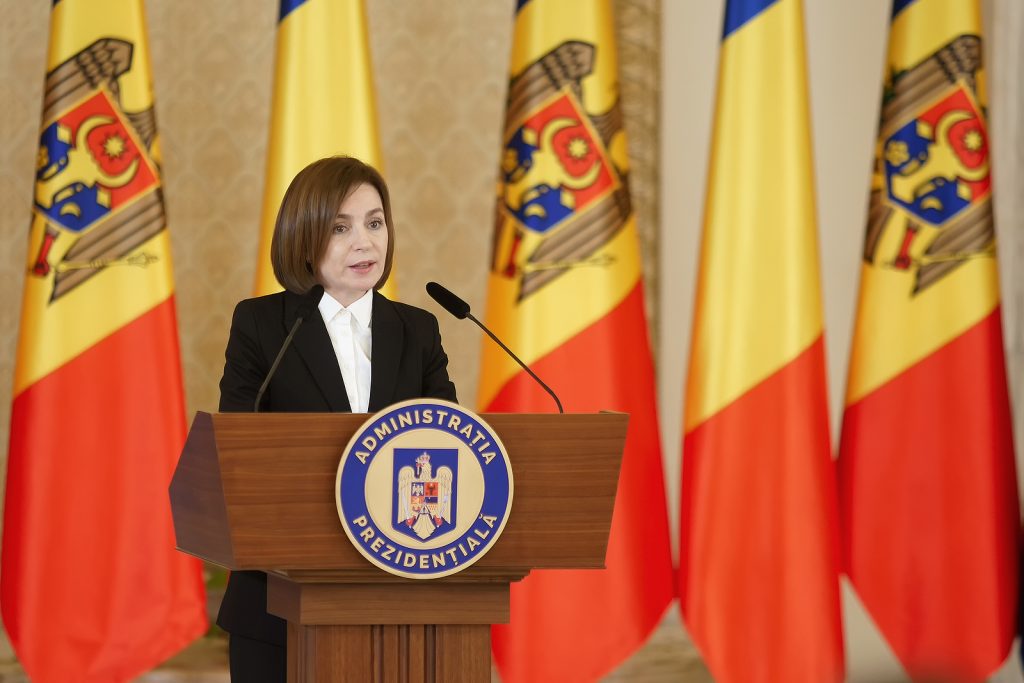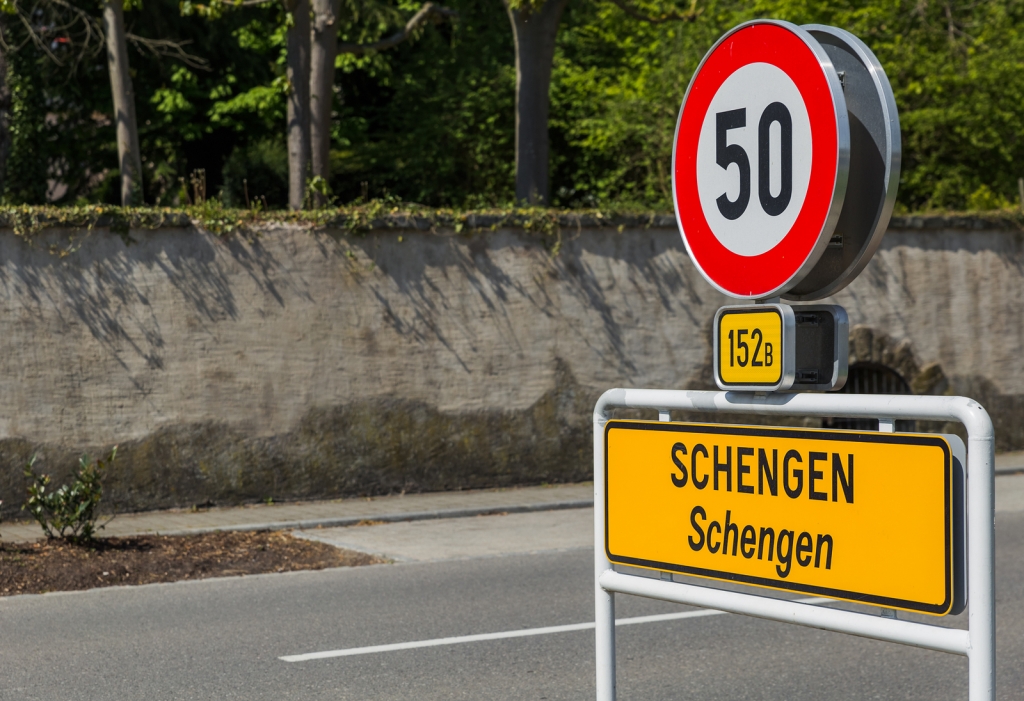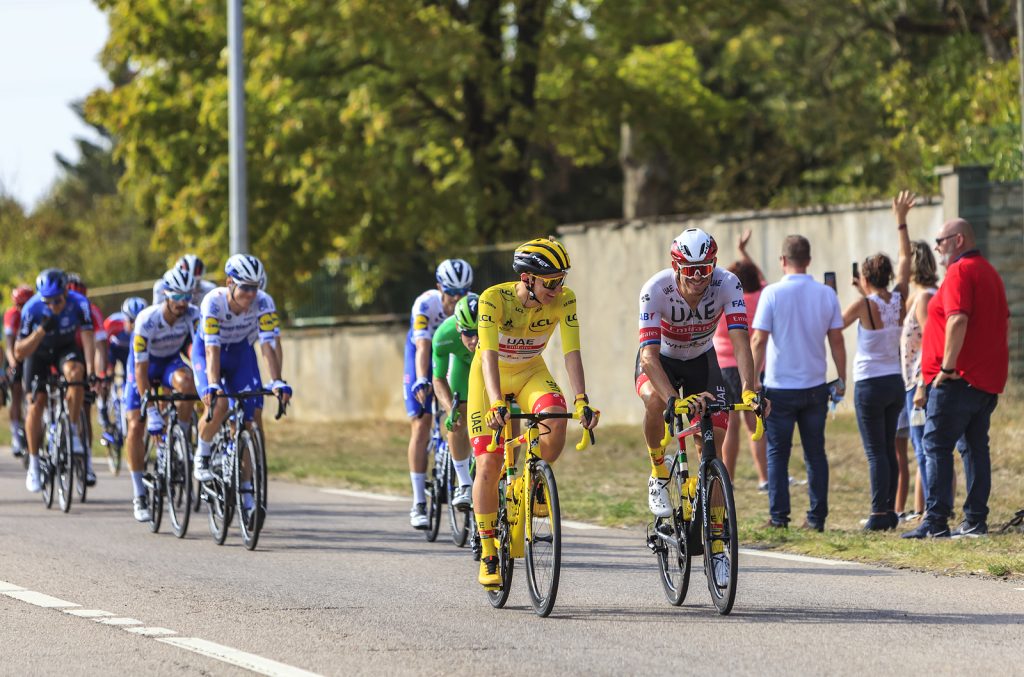From Ukraine’s ongoing resilience in the face of Russia’s brutal aggression to rigged elections in Georgia, political stalemate in Bulgaria, and the shooting of Slovakia’s PM, this is Emerging Europe’s review of 2024.
Ukraine launched a surprise incursion into Russia’s Kursk region in August, taking both its western allies and Russia by surprise. By the end of the first week, the Ukrainian military said it had captured 1,000 square kilometres of Russian territory, and some 28 settlements.
While Ukraine continues to hold much of the territory, in the wider war it ends 2024 on the backfoot, struggling to recruit soldiers as Russia, now backed by North Korean forces on the battlefield, makes slow, suicidal advances on the Donbas front.
At the end of November, Ukrainian President Volodymyr Zelensky subtly shifted his rhetoric about ending the war with Russia, suggesting that Ukraine is open to stopping the fight to regain Russian-occupied territory in exchange for membership in NATO.
In a series of interviews and public statements in recent weeks, Zelensky has sought to show that he is prepared to negotiate an end to the conflict—something that US President-elect Donald Trump repeatedly called for on the campaign trail.
For most of the war, Zelensky has insisted that his country would keep fighting until it had reclaimed the roughly 20 per cent of the country currently under Moscow’s control.
Now, however Zelensky appears to be gently signalling that he could accept a ceasefire that effectively would leave occupied territory in Moscow’s hands if the rest of Ukraine were given protection by NATO—terms that Russia is likely to reject, however.
Georgia held a parliamentary election in October, the results of which the country’s opposition refused to recognise, citing irregularities in the voting process and accusing the ruling Georgian Dream party, which has drifted further away from the EU towards Moscow over the past 12 months, of fraud.
At the end of November, the European Parliament adopted a resolution condemning the parliamentary elections for being neither free nor fair, and calling for them to be re-run within a year. In response, Georgian Dream halted the country’s EU accession process and ended all cooperation with EU programmes and initiatives. The response sparked a new wave of widespread protests across Georgia, which continue.
Pro-EU President Salome Zourabichvili, due to end her second term in office on December 29, has vowed to stay in her post, claiming that the ‘illegitimate’ parliament has no right to elect her successor.
“My mandate ends when the new legitimate president will be elected. That depends on new elections and it’s the main demand of people on the streets,” said Zourabichvili, who has regularly joined pro-EU protesters on the streets of Tbilisi.
Armenia and Azerbaijan moved closer to a formal peace deal following a brief meeting on the sidelines of the BRICS summit in the Russian city of Kazan in October between Azerbaijani President Ilham Aliyev and Armenian Prime Minister Nikol Pashinyan. The pair instructed their respective foreign ministers to fast-track negotiations on an, Agreement on the Establishment of Peace and Interstate Relations.
The main stumbling block to peace is the Azeri demand that Armenia amend its constitution to recognise Azerbaijan’s sovereignty over the province of Nagorno-Karabakh, internationally-recognised as Azeri territory but for decades occupied by Armenia until it was taken by Azerbaijani forces in September 2023.
Azerbaijan hosted COP29 in November to general derision, given the country’s ongoing reliance on the export of fossil fuels for its economic well-being.
Aliyev used his speech at the opening of the event to deliver strong criticism of Western governments that purchase his country’s gas while condemning its fossil fuel-dependent economy.
“It is not fair to call Azerbaijan a ‘petrostate,’” Aliyev said, pointing out that the country accounts for less than one per cent of global oil and gas production. “Oil and gas are a gift from God, just like the sun, wind, and minerals.
“Every natural resource, whether its oil, gas, wind, sun, gold, silver, copper, all that are natural resources. Countries should not be blamed for having them and should not be blamed for bringing these resources to the market.”
In December, the heads of the security services of Kyrgyzstan and Tajikistan announced that they have finalised the delimitation of their shared border, marking what they described as a historic step in resolving years of tension and conflict.
The declaration was issued jointly by Kamchybek Tashiyev, head of Kyrgyzstan’s State Committee for National Security, and Saimumin Yatimov, his Tajik counterpart.
It will now fall to working groups to draft the final legal documents, paving the way for ratification by the countries’ parliaments and presidents in the coming months. Specifics on exactly how the almost-1,000-kilometre-long border has been demarcated have yet to be made public.
Groundhog Day in Bulgaria came and went once again as the country ended the year as it began: without a permanent government, despite having held two parliamentary elections over the course of the year.
An eighth general election in just over three years is now likely to be held in the spring of 2025 and promises to be just as inconclusive as the previous seven.
In Slovakia, populist Peter Pellegrini was elected president of Slovakia in April, succeeding the liberal Zuzana Čaputová who did not run for a second term in office.
A former prime minister, Pellegrini is a close ally of Slovakia’s Prime Minister Robert Fico, and shares the PM’s dovish attitude towards Russia.
A month later, in May, Fico was shot and injured in an apparent assassination attempt by a 71-year-old, Juraj Cintula, who was detained by police at the scene. Cintula has stated however that he did not intend to kill Fico, only to harm him in such a way as to render him unable to serve as prime minister.
Fico was discharged from hospital in June and resumed duties later in the summer.
Romania’s Constitutional Court scrapped the country’s presidential election in December, just 48 hours before Romanians were due at the polls for the second round of voting.
The second round was immediately cancelled, and the entire presidential election process will now be rerun, most likely in March next year. Until then, incumbent Klaus Iohannis will almost certainly remain in office.
At the centre of events is Călin Georgescu, running as an independent with the backing of three extremist parties, who won the first round with 22 per cent of the vote. Georgescu has been accused of holding pro-Russian, fascist views. He was due to face the broadly progressive, pro-European Elena Lasconi, leader of the Save Romania Union (USR), in the run-off.
In its ruling, in which Georgescu was not named directly, the court cited illegal use of digital technologies including artificial intelligence, as well as undeclared sources of campaign funding.

In neighbouring Moldova, Maia Sandu (above) was re-elected for a second term in office, comfortably defeating—with significant help from Moldova’s large diaspora—the Russian-backed candidate Alexandr Stoianoglo.
Sandu also managed to push through a referendum on a constitutional amendment that enshrines Moldova’s ambition to one day join the EU in its constitution. As with the presidential election, it was the high number of votes in favour of the amendment cast by Moldova’s diaspora that won the day for the pro-EU camp.
North Macedonia swore in a new, nationalist-dominated government led by Prime Minister Hristijan Mickoski in June, following his party’s victory in elections in May.
The ruling coalition is now composed of Mickoski’s VMRO-DPMNE party, the Albanian alliance VLEN/VREDI and ZNAM, an ethnic Macedonian splinter from the Social Democrats (SDSM).
Mickoski, in his first speech as premier, told Macedonian MPs, “it is time to roll up the sleeves and start solving problems in this country”.
Croatia’s Prime Minister Andrej Plenković survived two no-confidence motions against his pro-European Union government in parliament in 2024, launched over a high-profile case of alleged corruption involving a former minister.
The motions were initiated by the opposition Social Democratic party, citing the involvement of government ministers and officials of the ruling Croatian Democratic Union in a series of corruption cases in recent years.
Poland, fresh off the 2023 elections that ushered in a more pro-EU coalition, spent much of 2024 restoring its credentials as a team player in Brussels. Parliament passed long-debated judicial reforms to address rule-of-law concerns, unlocking much-needed EU recovery funds.
Nevertheless, the government had to deal with delicate domestic debates on how best to handle abortion (still basically illegal), migration, and manage rising housing costs, reflecting a Poland in flux yet steadying its European course.
In 2025, the country elects a new president. Mayor of Warsaw Rafał Trzaskowski, backed by Civic Coalition, the largest party in government, will be the hot favourite.
In Hungary, PM Viktor Orbán has had to deal with the biggest threat to his grip on office: the rise of a new opposition figure, Péter Magyar, a former member of Orbán’s Fidesz party.
In November, Magyar accused Orbán’s government of spying on him and his staff.“Intelligence officers who serve their country and not a mafia government have confided in me that my apartment, our offices and our vehicles have been bugged for months,” said Magyar, who now leads the opposition Tisza party, which is currently polling well ahead of Fidesz. Hungary next elects a parliament in 2026.
Earlier in the year, in February, Hungary’s president, Katalin Novák, a staunch Orbán ally, was forced to step down over her decision to pardon a man convicted of helping cover up a sex abuse case at a children’s home. Hungary’s parliament later elected a former head of the Constitutional Court, lawyer Tamás Sulyok, to replace her as president.
Serbia was hit by a wave of protests in October in opposition to Rio Tinto’s planned lithium mine in the country, with demonstrators saying its development will damage the environment.
The protest comes after the ruling coalition led by the Serbian Progressive party (SNS), which holds an overwhelming majority, rejected an opposition draft law stipulating a ban on mining and exploration for lithium and borates.
Lithium, regarded as a critical material by the EU and the US, is used in batteries for electric vehicles and mobile devices. If implemented, Rio Tinto’s Serbia project could reportedly meet 90 per cent of Europe’s current lithium needs, positioning the country as one of the world’s leading lithium producers.
Fresh protests in December—when as many as 300,000 people rallied against President Aleksandar Vučić and the perceived corruption of the SNS, which they blame for a railway station roof collapse in November that killed 15 people—threatened to bring down the government.
For now, it hangs on.

Bulgaria and Romania were finally given the green light to join fully the border-free Schengen travel zone at a meeting of the European Council in December. While both countries had joined Schengen with their airports in March, controls had remained at land borders.
Border controls at land crossings between the two countries, and with other Schengen nations (Hungary, Greece) will now disappear entirely on January 1, 2025.
On Christmas Day, 38 people were killed when a passenger plane operated by Azerbaijan Airlines burst into flames as it crashed near the city of Aktau in Kazakhstan after veering hundreds of kilometres off its planned route.
The flight was carrying 62 passengers and five crew members from Azerbaijan’s capital, Baku, to the Russian city of Grozny in Chechnya. There was speculation in Russian media that the plane could have been shot down by Russian air defences, which mistook it for a Ukrainian drone.
Latvia’s investment promotion agency LIAA displaced Invest Estonia as the leading national investment promotion agency (IPA) in Central and Eastern Europe and the Baltics, ending four years of uninterrupted Estonian success. In the 2024 edition of Emerging Europe’s Investment Promotion Report, published in April, and which since 2018 has taken an in-depth look at how the region’s 23 IPAs communicate their investment opportunities and how they use their digital channels to get potential investors interested in the various business opportunities offered by the region’s key sectors, LIAA, third in 2023 behind Estonia and Lithuania, leapfrogged both of its Baltic neighbours to claim top spot.
Estonia retained top spot however on Emerging Europe’s IT Competitiveness Index, part of our annual Future of IT report. Estonia scored 63.83 out of a possible 100 points. Latvia (up from fourth) took second place with 60.46, overtaking both Lithuania (59.26) in third and Poland (54.62), which fell to fourth. Romania (53.28) rounded out the top five.
Estonia also took first place on our Future of Emerging Europe Sustainability Index, ahead of Slovenia and Czechia.
In October, Polish convenience retailer Żabka launched the region’s largest IPO of the year on the Warsaw Stock Exchange (GPW). The value of the IPO reached 6.45 billion złoty (1.5 billion euros) – making it the fourth biggest debut in the GPW’s history and putting the value of the entire company at 21.5 billion złoty (five billion euros). However, Żabka’s shares have since fallen around 12 per cent in value since the IPO.
Another retailer meanwhile, Croatia’s Studenac, cancelled its planned IPO (due to be split between the GPW and Zagreb exchanges) in November. The company and its Warsaw-based private equity owner Enterprise Investors had sought to raise as much as 794 million złoty (185 million euros) from the share sale.
It was reported that the Studenac IPO collapsed after the European Bank for Reconstruction and Development (EBRD) scrapped plans to buy a stake of as much as 10 per cent stake in the retailer.
In December, the sale of Royal Mail’s parent company to the Czech billionaire Daniel Křetínský was approved by the UK government after a review under national security laws, confirming the 3.6 billion UK pounds takeover of International Distribution Services (IDS)—the owner of the 508-year-old Royal Mail—by Křetínský’s EP Group.
It will be the first time Royal Mail has been controlled by an overseas owner in its history, which stretches back to 1635 when Charles I introduced a public postal service.
Also in December, Romanian businessman Dan Șucu bought a controlling, 77 per cent stake in Italy’s oldest football club, Genoa, for an undisclosed sum.
On May 7, 1986, Steaua Bucharest goalkeeper Helmuth Duckadam saved all four Barcelona penalties in a shoot-out to decide the European Cup Final in favour of the Romanian side. He remains the only keeper in history to do so.
Though Duckadam’s career was soon after cut short by a rare blood disorder, he remained an icon of both Steaua and Romanian football until his untimely death at the age of just 65 in December.
“Romanian football lost a legend and we, all of us who love this sport, lost a role model,” said Razvan Burleanu, president of the Romanian Football Federation (FRF). “Helmut Duckadam was not only an exceptional goalkeeper, but a symbol of the impossible transformed into reality.
“Through his heroic performance in Seville, he put Romania on the map of world football.”

It was a good year for sportsmen and women—and teams—from Central and Eastern Europe and the Caucasus in 2024. Four stand out, however: Slovenian cyclist Tadej Pogačar (pictured above), Ukrainian boxer Oleksandr Usyk, Ukrainian high jumper Yaroslava Mahuchikh, and the Georgian men’s football team.
Pogačar was all but unbeatable in 2024, winning just about every race he entered, including the Tour de France, the Giro d’Italia and the World Road Race Championships—widely viewed as being cycling’s triple crown. He also won the Volta a Catalunya, Liège–Bastogne–Liège, the Giro di Lombardia, and Strade Bianche. Not since the days of Eddy Merckx in the early 1970s has one cyclist dominated the sport in such a way.
Usyk meanwhile became the first undisputed world heavyweight champion of the four-belt era when he defeated Tyson Fury on points in May 2024. That also made the Ukrainian the first undisputed heavyweight king since British fighter Lennox Lewis in 1999. Usyk beat Fury again in December.
Mahuchikh also had an extraordinary 2024, breaking a world record that had stood since 1987 and winning Olympic gold. She was later in the year named female athlete of 2024 by the World Athletics.
Finally, Georgia’s national football team may not have made it past the second round at the European Championships in the summer, but their style of play—gung ho in an era of safety-first soccer—won them many friends and entertained us all. And in Giorgi Mamardashvili—set to join Liverpool next summer—they could also boast the tournament’s best goalkeeper.
Main photo: © European Union.
At Emerging Europe, we use an integrated approach centred around market intelligence to help organisations understand trends and strategically position themselves for success.
Learn how our solutions can help you thrive in the region:
Company and Services Overview | Strategic Advantage.
Source link


